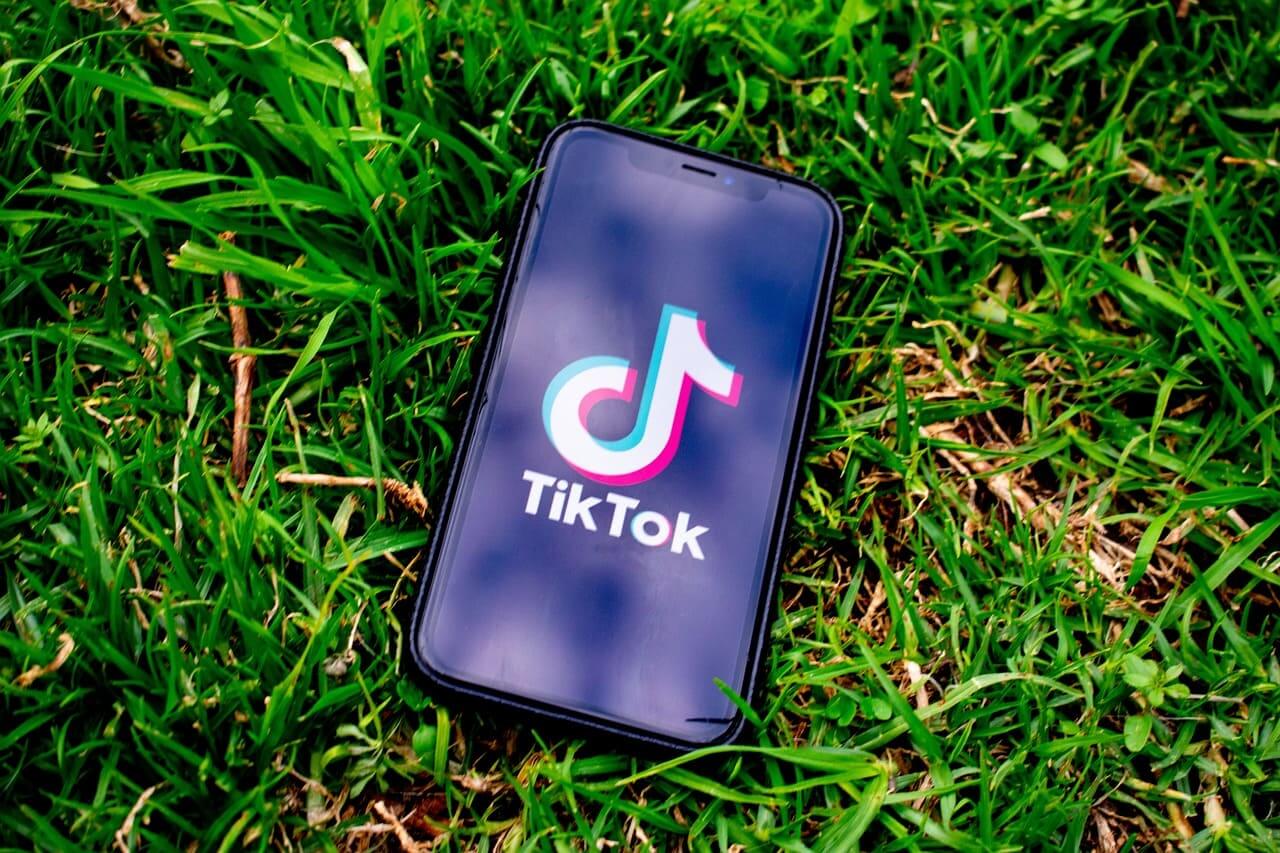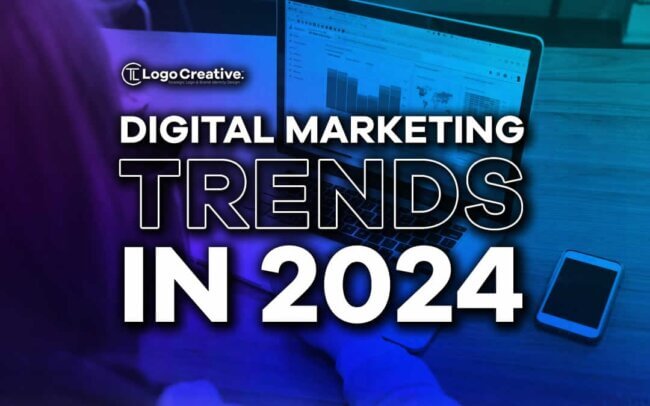We have entered a new year, and the 2024 digital marketing landscape continues to evolve at an unprecedented pace, led primarily by advancements in technology and shifts in consumer behaviour. Let’s look at some Digital Marketing Trends in 2024.
Today’s digital marketers face the huge challenge of cutting through the noise to capture the attention of increasingly discerning audiences who are bombarded with messages, ads, and unused coupon codes by the hour.
This comprehensive guide delves into the latest digital marketing trends, including the rise of generative AI in content creation, the power of personalised outreach, the impact of user-generated content (UGC), and the growing importance of podcasts and authenticity in brand strategy.
Through real-life examples and backed by compelling data, we explore how marketing agencies and brands are leveraging these trends to create meaningful connections, enhance engagement, and drive growth.
Whether you’re looking to refine your personal marketing strategy or seeking insights into the future of digital marketing as a business, this article offers valuable perspectives on navigating the complexities of the digital landscape in 2024.
Table of Contents
The Rise of Generative AI in Content Creation
The arrival of generative AI, exemplified by models we are all familiar with, like GPT-4 and Bard, has redefined content creation as we knew it.
Agencies now harness these AI tools to craft bespoke content at scale, ensuring brand messages resonate across platforms.
This upward trend will continue as businesses improve their ability to work with these models. However, considering they are still in their infancy and don’t yet omit errors, they will still need active human intervention.
Regardless, considering the various creative use cases for the GPT-4 model, including email and subject line templates and original storytelling initiatives for brands, we expect generative AI in content to continue to spread like wildfire this year.
SEO: Emphasising User Experience (UX)

Search Engine Optimisation (SEO) is at the forefront of all marketers’ minds this year, and it has been a significant aspect of brand visibility on the search engine since the 90s.
Google’s predicted emphasis on user experience as a ranking factor in 2024 led agencies to prioritise website design and functionality since 2023.
Consumers do not want to use websites that are difficult to navigate or have too many ads on the screen; they will leave and visit the competitor with fewer ads and better UX instead.
An SEO agency’s overhaul of a retail website, focusing on mobile optimisation and site speed, can result in a 70% improvement in page load times and a 20% rise in organic search traffic.
These improvements highlight the critical role of UX in SEO strategy, ensuring websites are not only discoverable but also provide a positive user experience.
Even if you opt to collaborate with a top digital marketing agency like The Media Image, who specialise in SEO, it is still important to communicate your goals for the user journey and site navigation with the UX team directly.
Additionally, if you choose to work with marketers who don’t specialise in SEO, it might affect the traffic you get to the site.
Personalisation at Scale With Machine Learning
Machine learning is at the forefront of personalised marketing in 2024. Agencies are deploying platforms like TensorFlow to dissect vast datasets, creating personalised customer journeys.
Push notifications are one aspect of personalisation that is becoming widely popular, especially when automated to send when you have recently shown interest in a brand, whether scrolling their website or looking at their app.
Temu is a brilliant example of this, although the amount of push notifications they send is spammy and less useful to a consumer. This is why timing, as well as frequency, are equally as important for businesses to consider.
Another trend is personalising products and brand messages to reflect the audience’s language. Natural language processing is used to analyse the content of reviews, social media posts and emails to identify attitudes and trends, thus enabling marketers to act on their discoveries based on the data.
This AI-driven approach signifies a shift towards hyper-personalised marketing communications, moving beyond traditional demographics to understand individual consumer preferences and behaviours.
Voice Search Optimization
With the surge in voice-activated devices, optimising for voice search is no longer optional, especially considering a study has found that almost 80% of answers from voice searches came from the top three organic results.
To get a share of the SEO potential, marketing agencies are now pioneering strategies to capture voice queries by focusing on conversational keywords and FAQs, and they’d better hurry up because the global AI-based and voice recognition market should reach $27.3 billion by 2030, according to insightSLICE, meaning there will be plenty of competition to outrank over the next six years.
Regardless, this trend highlights the importance of optimising digital content for natural language patterns to capture the growing segment of voice-activated search users, especially for local SEO.
Video Marketing: Beyond the Traditional
Agencies are pushing the boundaries of video marketing, leveraging platforms like TikTok and Instagram Reels to engage and entice younger demographics to buy into their brand.
From independently run businesses such as local sweet shops to large enterprises like Netflix, it appears video marketing is favourable for all sized businesses in 2024.
This is unsurprising considering the huge reach both platforms offer: TikTok (1.92 billion users) and Instagram (1.4 billion).
Some examples of businesses using video marketing include Fenty Beauty, who create beauty-based tutorials for their 2.7 million followers, and Dunkin’, one of the first brands ever to employ influencer marketing on the platform with Charli D’Amelio.
Both highlight the power of interactive and viral video content in driving brand awareness and engagement, encouraging brands to think creatively and embrace the spontaneity of short-form video content.
Augmented Reality (AR) in Brand Experiences
Augmented reality is revolutionising the consumer experience, with agencies crafting immersive AR campaigns that enhance online shopping and brand interaction.
An innovative campaign by Asos in 2020 enabled “see my fit” technology, digitally placing clothing onto models, allowing shoppers to view clothing on different body types.
Similar campaigns demonstrate the potential of AR to bridge the gap between digital and physical experiences, offering a tangible feel of the product offerings of a business without the need for physical presence.
The Emergence of Social Commerce

Social commerce has become a significant focus for agencies aiming to merge social media engagement with direct sales. By integrating shopping features into social media platforms, agencies turn followers into customers.
TikTok shop, for example, has become a huge marketing initiative in 2024 for small local businesses and large enterprises — whereby businesses can go live with their product offerings while interacting with their customers, answering questions and providing demonstrations.
These tactics also help to promote their brand awareness and, particularly, their follower count as the algorithm places their content in front of consumers who may be interested in their products based on the individuals’ data of interests, preferences, and interactions.
Sustainability: A Core Marketing Message
Marketing agencies are increasingly highlighting sustainability as a key brand differentiator. By crafting narratives around sustainability efforts, agencies are helping brands connect with eco-conscious consumers
This approach not only aligns with consumer values but also positions brands as leaders in corporate social responsibility.
We expect this to continue to grow as a trend as the year progresses, particularly as recent studies commissioned by SmartestEnergy reveal that 4 out of 5 people want to buy into a brand with a positive environmental approach to sustainability.
Interactive Content: Engaging Audiences Differently
Scrolling through black-and-white text can be boring to some consumers. Agencies are leveraging interactive content more than ever to engage users uniquely and memorably through the following forms:
- Quizzes
- Infographics
- Polls
- Videos
- Assessments
- Maps
- Calculators
Such content enables brands to collect valuable consumer insights while providing an engaging experience that users enjoy interacting with.
Quizzes work particularly well for e-commerce, especially in fashion and beauty, where consumers want to discover the category they fit under before they spend money on a product. For example, a consumer of a beauty website may want to take a test to find out what her perfect lipstick colour is before making a purchase.
User-Generated Content (UGC): The Authentic Voice of the Customer
User-generated content (UGC) has surged in importance as brands recognise the power of authentic customer voices in building trust and engagement.
Coca-Cola’s “Share a Coke” campaign is a prime example, where personalised Coke bottles spurred users to share their moments on social media, significantly boosting brand visibility and engagement.
A Nielsen study found that 92% of consumers trust organic, user-generated content more than traditional advertising, highlighting the effectiveness of UGC in fostering a genuine connection with audiences.
By leveraging UGC, brands enhance their credibility and create a more relatable and trustworthy image.
Podcasts: The Rise of Audio Engagement
Podcasts have emerged as a powerful tool in the digital marketing arsenal, offering a unique way to engage audiences through compelling storytelling.
Spotify’s Wrapped campaign leveraged its insights to engage users by providing personalised summaries of their listening habits, widely shared across social media platforms.
The podcast industry has seen exponential growth, with Edison Research reporting over 100 million podcast listeners in the United States alone, indicating a vast potential audience for brands.
Marketing agencies are increasingly advising brands to sponsor podcasts or create their own to capture the attention of this engaged and growing audience.
Personalised Outreach: Beyond the Mass Email

Personalised outreach has evolved from simple name mentions in emails to deeply customised content tailored to individual preferences and behaviours.
Netflix’s recommendation system exemplifies personalised outreach by suggesting titles to users based on their viewing history, leading to increased viewer engagement and subscription retention.
HubSpot’s report on email marketing highlights that emails with personalised subject lines are 26% more likely to be opened, underscoring the significance of personalisation in improving marketing outcomes.
Agencies now use advanced data analytics to craft personalised marketing messages, significantly enhancing customer engagement and conversion rates.
Authenticity: Building Trust in the Digital Age
Authenticity has become a cornerstone of successful digital marketing strategies, with consumers increasingly valuing transparency and genuine interactions.
Patagonia’s commitment to environmental activism and sustainable practices has solidified its reputation as an authentic brand that lives by its values, resulting in a loyal customer base and strong sales growth.
A Sprout Social survey revealed that 86% of consumers believe transparency from businesses is more important than ever, demonstrating the critical role authenticity plays in building trust and loyalty.
Marketing agencies are now guiding brands to communicate their values clearly and consistently, ensuring that their marketing efforts resonate authentically with their target audiences.
Influencer Marketing: Authenticity Leads the Way
Influencer marketing is a great way to connect directly with your audience through a trusted and established source that they interact with and are interested in.
In 2024, agencies are now focused on micro- and nano-influencers, who offer highly engaged niche audiences that brands will shift towards longer-term collaborations with.
This enables influencers to promote a brand more effectively and frequently in a way which resonates with their audience and enables them to build higher levels of trust.
If an influencer you follow continues to recommend a service or product, you are more likely to be interested.
Summary
This expanded analysis of digital marketing trends in 2024 reveals how marketing agencies are not just following digital marketing trends but are actively shaping the future of brand engagement through innovative strategies and technologies.
By leveraging SEO and authentic, personalised marketing while embracing emerging technologies like AI models, agencies are crafting campaigns that resonate deeply with target audiences while saving time, and driving brand growth and loyalty in an increasingly competitive digital landscape.
Join The Logo Community
We hope you enjoyed this article about Digital Marketing Trends in 2024.
If you would like more personal tips, advice, insights, and access to our community threads and other goodies, join us in our community.
You can comment directly on posts, access our community threads, have a discussion and ask questions with our founder Andrew.
If you’re looking to learn more about brand strategy, we highly recommend eRESONAID with our friend and acclaimed brand strategist and author Fabian Geyrhalter, it’s packed full of knowledge and insights you will need to learn to become a brand strategist or apply what you learn within your own business.


